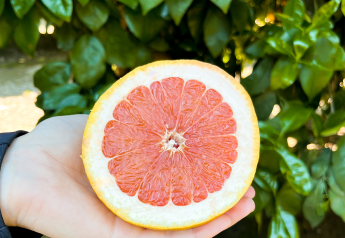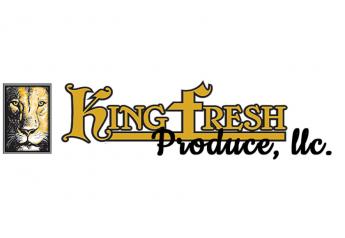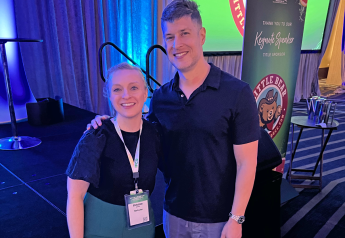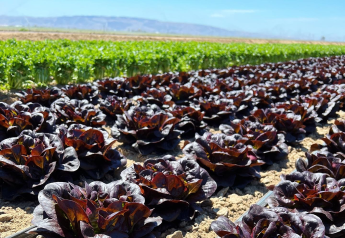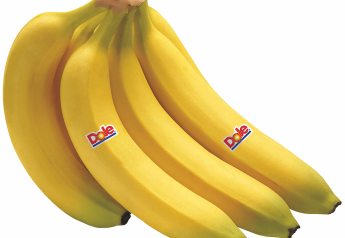As USDA organic rules intensify, an advisory firm aims to help companies meet challenges
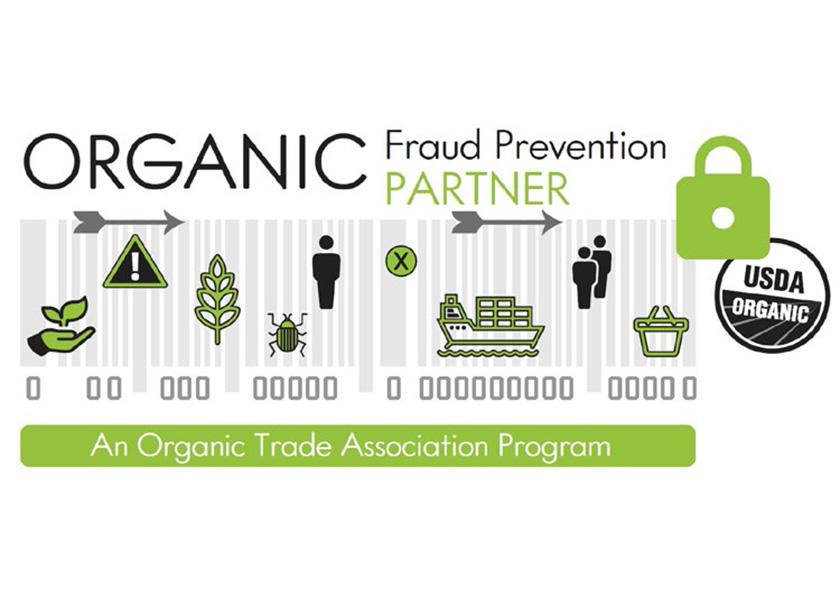
As global supply chains become increasingly complex, the integrity of the USDA’s organic seal is being put to the test. And it’s easy to see why.
Organic products enjoy growing market demand, command a price premium and, typically, the end product is indistinguishable from a noncertified or conventionally grown product. It’s understandable that these combined factors could tempt bad actors or inspire a fraud attempt.
To bolster the integrity of the organic seal and address fraud concerns, the USDA’s National Organic Program earlier this year issued a comprehensive Strengthening Organic Enforcement Final Rule, setting implementation for March 2024.
Broadly, the final rule reduces exemptions and increases traceability due diligence across global supply chains. For organic consumers and industry advocates, the increased due diligence for the certified organic seal is welcome news, but how do businesses assess their supply chains to determine if and how they will be affected by the new Strengthening Organic Enforcement Final Rule?
Longtime organic advocates Gwendolyn Wyard and Kim Dietz recently teamed up and created an organic advisory firm to help companies answer such questions. The two organic industry veterans launched Strengthening Organic Systems, the first consultancy focused solely on organic fraud prevention, supply chain investigation and compliance with the USDA organic antifraud regulations.
Related news: USDA’s new organic rule tackles fraud
The Packer spoke with Wyard to discuss why the final rule matters for produce supply chains, how she decided to launch Strengthening Organic Systems with Dietz and what business can do now to prepare for the March 2024 deadline.
(Edited for length and clarity.)
The Packer: The timing of the Strengthening Organic Systems advisory firm launch couldn’t be more perfect. I’m curious, what you think businesses should be doing right now to prepare for the Strengthening Organic Enforcement Final Rule?
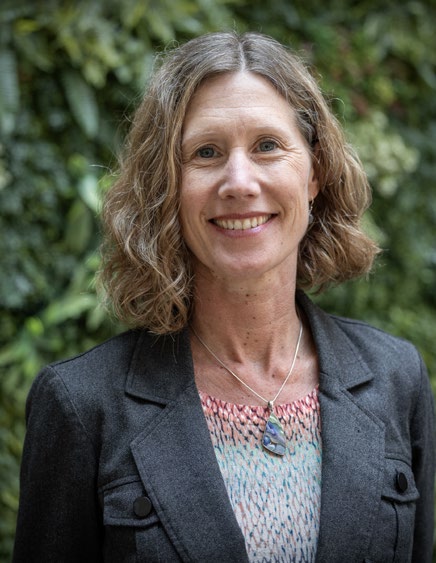
Wyard: The clock is ticking, and the implementation is March of 2024 — we're getting to the halfway mark. As we are talking with folks throughout our networks, it's a little startling the number of people that we are talking to that are not aware of the [Strengthening Organic Enforcement Final Rule] changes.
There's a lot of work to be done just in getting the word out. One thing Kim and I are doing is talking with businesses and helping them to communicate up and down their supply chain.
Kim and I have worked together for many, many years, and we've always talked about doing something together. We figured we'd probably know when that moment would be right. We both have had great jobs and careers. I've been at the Organic Trade Association for 12 years, and prior to the OTA I was with Oregon Tilth. I have a background in organic inspection certification work.
During my time at the OTA, turning the clock back to 2017, the Washington Post came out with the headline about the fraudulent grain coming into the U.S. from the Black Sea region. That was that was one of the worst days in terms of working at the OTA and having a lifelong career in organic. When you see a headline like that — that was a rough morning.
But then you know, I quickly thought, "Well, this is both the worst and the best news, because I would rather know about it." Fraud is not unique to organic, but it just happens to be that organic is a space that's very attractive to fraudsters.
Absolutely. Organic produce is a premium product that typically appears to a consumer almost identical to its conventionally grown counterpart.
There's a price premium and demand is outpacing supply. You put those things together and because, like you said, the physical characteristics of it — an apple is an apple — how can you really tell the difference?
So just at that point, I said to our members at the OTA, "We have got to address this."
At that time we formed a task force that I led, and we put together what is now known as the Organic Fraud Prevention Guide. We started off as a task force saying, "Let’s put together best practices and resources that can help the industry prevent fraud.’'
It evolved into this guide and then stood up a program called Organic Fraud Prevention Solutions. And we set the program up so that businesses could enroll, and they would go through training that helps them put together an organic fraud prevention plan.
In our program we also created a category of trusted advisors, knowing that these companies probably were going to need some help. And we needed to have external partners — consultants and advisers — that could help. In the back of my mind at that time, I thought, "Oh, I sure would like to be a trusted adviser, but you know, that's OK. I'm here with OTA and this is good." So, I put that [idea] in the parking lot.
Fast forward, the final rule comes out this year in March, and I thought, "This is such an opportunity to do what has been my dream for a long time: to start a business, get out there and become an adviser."
I called up Kim and I said, "What do you think? Because right now, there's companies that need help, and I think that we can really go the distance as qualified advisers that can help businesses do what they need to do. In partnership with the OTA, we can be the boots on the ground out there working directly with businesses."
We took the leap and decided to put the business together. We are seeing a tremendous amount of interest right out of the gate because we literally just got started last month.
I already knew how many companies needed to get some help. People who are tracking this are asking us, "Do you have a template, or do you have something you could help us put together so that we can accurately communicate up and down our supply chain saying, you may need to get certified?"
Over 1,000 operations are going to need to get certified in the U.S. because they're no longer exempt, including many brokers, traders, storage facilities and distributors.
I was curious about that! Do businesses know that their exemptions might be coming to an end?
Consider the possibility of business disruption for a certified operation to find out that, there's a broker, trader or somebody in their supply chain that isn't certified after March 2024. It’s bound to come up, but right now is the time to really figure that out. The airwaves are starting to pick up right now. That's what Kim and I are really trying to do.
We're really focused on getting the word out and helping people put together their organic fraud prevention plan.
We’re rolling up our sleeves and getting into the meat of it with the fraud prevention plans. We’re asking what are your high-risk ingredients? How do you know which ingredients are high risk? What sort of history information do you have? Economic? Geographical? Where are they coming from in terms of history of fraud in that region?
We’re identifying high-risk ingredients and supply-chain mapping; that's what everybody needs to do right now.
[It's about] identifying who in the supply chain might need to be certified as well as gaining full visibility of the supply chain to understand where the vulnerabilities are and where mitigation measures need to be put in place. [This work is] industrywide and certifierwide. Everyone is trying to figure out what that system looks like.
What does that mean for single-ingredient products like fresh fruit and vegetables?
For folks that are importing, there's just more information that's going to be coming out along the way, but make sure that people are understanding how to use the organic integrity database where all the certificates are generated.
Also for the produce community, I think [they need to be] answering the question, "Am I going to need to get certified if I'm a storage facility or I'm a distribution center?" The answer in almost all cases is going to be yes. That's where the produce community is going to get hit the hardest, I think.
[There's also] the nature of the packaging that's used [on produce], and to have a requirement that it needs to be arriving in a sealed and tamper-evident proof container from arrival all the way through. That doesn't happen very often in produce.
That would prevent the possibility of co-mingling.
The simple approach is going to be to say, "If you're in my supply chain, you need to get certified." It's not an overnight thing, and that's also that part of it if people haven't started the process yet — so don't procrastinate.


